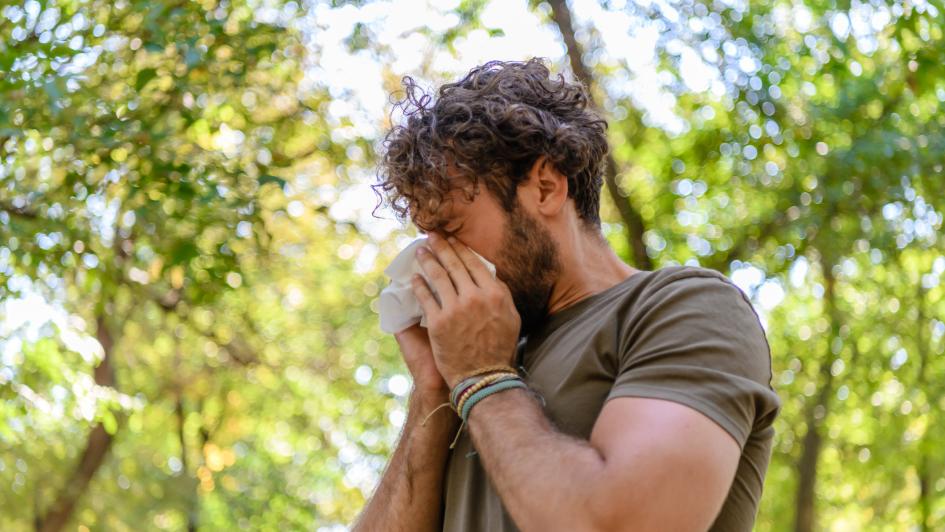Seasonal Allergies – What to do to Alleviate Symptoms

Published
It’s that time of year again! The sunshine is coming back, and so is the pollen. Everyone has heard tips like “eat local honey to help with seasonal allergies,” but without a solid foundation of health, you may be disappointed that your efforts don’t produce the end results you want.
Dr. Sweeney, a first-year resident at Bastyr University Clinic, has some tips on how to combat seasonal allergies and set your body up for success.
Identify and Remove Obstacles to Cure
Poor indoor air quality can be a huge trigger for allergens, leading to poor quality sleep. Dust can collect in hard-to-reach places, causing sneezing, watery eyes, and coughing. Some general tips to get started improving your air quality include:
- Get a HEPA air filter and vacuum filter. Change it every three months.
- Keep pets out of your bedroom. This is hard for some of us, but if you do, run a HEPA air filter.
- Remove or replace old carpets (hardwood floors are best!)
- Use a Neti pot every morning and evening.
- Take a shower and put on clean clothes before bedtime. Contrast showers can be helpful. Start your shower in hot water, then swap your hot water for cold for a few minutes.
- Eliminate certain foods, hygiene products, soaps, etc. that have high toxicity levels.
- Visit EWG.org for guidance on clean products
- Think Dirty app can help you purchase clean products
- Consuming foods that you are sensitive to can make your immune response to allergens even worse. Food sensitivities are best discovered by avoiding certain foods and looking for symptoms to decrease, although testing can also be helpful.
Assess the Determinants of Health
Is your body being properly nurtured? Create space for your body to create those natural antihistamines! Some things to try include:
- Eat a variety of colors - eat seasonally, eat organic, and eat regularly.
- Drink at least half your body weight in oz of water per day.
- Move your body! 30 minutes of moderate-intensity exercise most days.
- Get adequate sleep.
- Learn to manage stress well.
- Do at least one thing each day that brings you joy.
Enlist the help of a naturopathic doctor!
A naturopathic doctor may recommend constitutional hydrotherapy, where you alternate between applications of hot and cold in conjunction with electrical stimulation.
Naturopathic doctors may also suggest a homeopathic remedy to help with seasonal allergies. Euphrasia helps with burning eyes and a runny nose. Allium cepa helps with a burning nose and watery eyes.
Craniosacral therapy, a therapy that focuses on releasing restrictions in the bones of the face and skull, can help to gently open the sinuses and allow for better drainage.
Chiropractic adjustments can help regulate histamine and cortisol levels in the body and can be a helpful adjunctive treatment for allergies.
Decrease Histamine Release
There are a few supplements and herbs that can aid in decreasing the amount of histamines in your body. The body releases histamines in response to exposure to allergens. Some common examples of histamines include headaches, digestive issues, hives, and nasal congestion. Examples of supplements and herbs include:
- Quercetin
- Bioflavonoids
- Vitamin C
- Bromelain
- Omega-3
- Nettles (Urtica dioica)
- Train the immune system with local pollen and honey.
Take care of your body by reducing inflammation, feeding it properly, supplying it with important supplements and herbs, and reducing stress. If you’d like to get started on reducing your histamine response to allergens, book an appointment at Bastyr Center for Natural Health in Seattle or Bastyr University Clinic in San Diego today!

